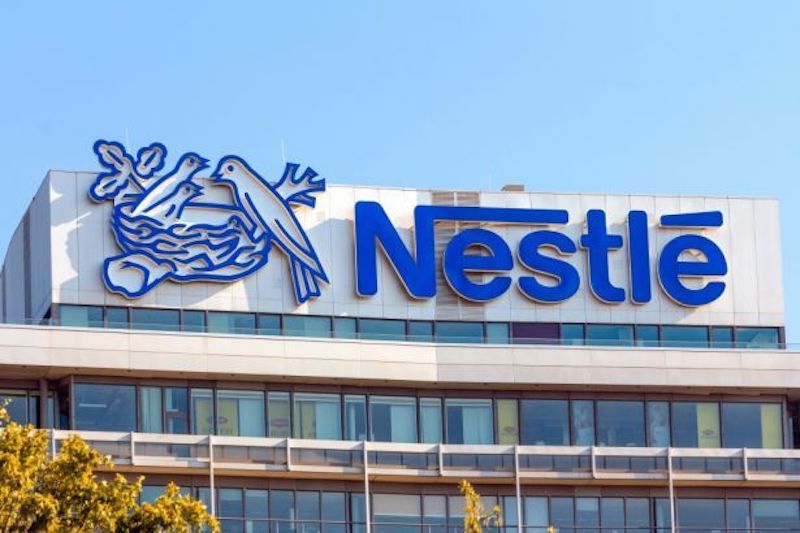
By Stella Ntia
In Nigeria, a country with a dynamic economy where the youth play an important role in upscaling its economic growth, the greatest investment would be the empowerment of its massive youth population.
Nestlé Nigeria has remarkably shown that it understands this as the greatest imperative. Its strategic commitment to human capital development is powerfully demonstrated through its comprehensive alignment with the global Nestlé Needs YOUth initiative. Within the past year, Nestlé Nigeria Plc has strategically reinforced its commitment to youth empowerment by channeling substantial resources and structured programmes under this initiative.
Having recognised the pressing challenge of youth unemployment and the vast entrepreneurial potential within Nigeria’s demographic, the company deployed a multiplex strategy. This approach doesn’t just focus on corporate employment but also on skill development, entrepreneurial training, and agripreneurship, effectively transforming young job seekers into skilled professionals and job creators across the economic landscape.
An example of Nestlé’s exceptional initiative includes the rigorous Technical Training Centre (TTC) program, operating across facilities like Agbara and Flowergate. Throughout the recent year, this program continued its legacy of bridging the significant technical skills gap in the manufacturing sector. A key milestone was the graduation of the 8th cohort of trainees on October 7, 2025, which saw 20 young professionals complete a rigorous 18-month program.
This curriculum expertly blends theoretical instruction with practical engineering experience in critical industrial fields, including electrical, mechanical, and instrumentation operations. The training culminates in internationally recognised certifications, such as the City and Guilds of London Technicians’ Certification. Furthermore, the first-ever graduation ceremony at the new Flowergate TTC, commissioned in 2023, underscored the company’s ongoing expansion of capacity for vocational training.
This intentional investment directly addresses the skill gap in Nigeria’s manufacturing sector, ensuring graduates are immediately employable; notably, over 90% of past trainees have been directly integrated into Nestlé Nigeria’s workforce, illustrating a clear and effective pathway from skill acquisition to gainful employment and long-term economic independence.
Complementing its efforts in formal employment, Nestlé Nigeria champions entrepreneurship through the My Own Business (MYOWBU) program, a grassroots effort. Launched under the Nestlé Professional division, this micro-enterprise initiative empowers participants, many of whom are students or unemployed graduates, to become independent mobile café operators. Operators are provided with fully branded pushcarts, beverage kits, essential training in sales, hygiene, and business management, and access to a sustainable, low-barrier income stream by vending Nescafé and Milo. Having generated over 1,500 jobs in Nigeria since its launch, MYOWBU is a direct response to financial instability, enabling young Nigerians to earn profits sufficient to fund their education or support their families, thereby fostering a culture of self-reliance and commercial resilience. Augmenting this physical initiative is the Nestlé Youth Entrepreneurship Platform (YEP). This free digital platform provides aspiring innovators with an Academy offering on-demand certificates, challenges, and expert mentorship. Crucially, YEP focuses on the future of food, nurturing business ideas related to regenerative agriculture, plant-based products, and sustainable packaging, thus linking entrepreneurial development directly to the company’s long-term sustainability goals.
Furthermore, Nestlé Nigeria has strategically engaged youth in the agricultural sector—the bedrock of the nation’s economy—through its focus on Agripreneurship. Through the Golden Morn Agripreneurship Webinar Series, Nestlé partners with the Enterprise Development Centre (EDC) of Pan-Atlantic University to provide comprehensive training to young agripreneurs. The program focuses on regenerative agriculture and business practices related to key grains, which are essential to Nestlé’s local sourcing ambition. Beyond training and mentorship, top participants receive seed grants (such as the N500,000 grants presented in 2023) to scale their ventures. This program strategically shifts the perception of farming from subsistence labor to a profitable, modern business enterprise, ensuring the continuity and sustainability of Nigeria’s agricultural future.
Indeed, Nestlé Nigeria’s actions over the past year demonstrate a clear strategy for youth empowerment and development. From the precision engineering skills imparted at The Technical Training to the vast entrepreneurial opportunities created by MYOWBU and the future-focused sustainability training in agripreneurship, the initiatives align perfectly with the need for immediate economic access and long-term societal progress. Nestlé has moved beyond corporate social responsibility to embedding youth development as a fundamental pillar of its shared value creation model, investing directly in the human capital required to build a stronger industrial and agricultural future for Nigeria.


